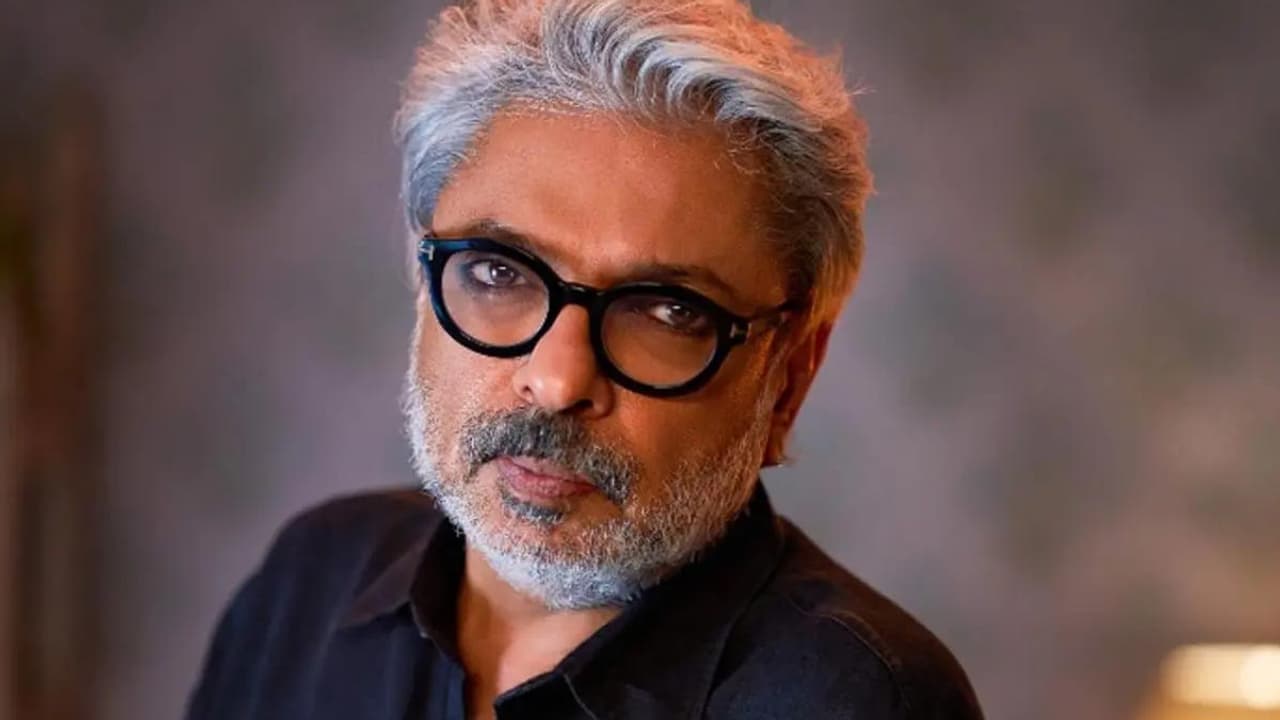Every actor dreams of working with Sanjay Leela Bhansali, the visionary behind Devdas, Bajirao Mastani, and Gangubai Kathiawadi, whose timeless storytelling and artistic genius make him Bollywood’s most desired filmmaker.
There’s a moment I’ve come to expect now. It happens quietly, somewhere in the middle of almost every conversation I’ve had on Table for Two. Whether I’m speaking to Pragya Jaiswal, Vishal Jethwa, Saiyami Kher, or Akshay Oberoi, the discussion, at some point, always circles back to one name. Sanjay Leela Bhansali. Even when I’m watching other interviews, the pattern continues. From the young and restless Ananya Panday to the most seasoned performers in the industry, there’s always a shift in tone when they speak about him. The eyes soften, the smile changes, and suddenly, the conversation feels less like work and more like worship. It’s not just admiration. It’s aspiration. Because to say “I want to work with Sanjay Leela Bhansali” is not merely to declare ambition, it’s to confess a dream that sits at the very top of an artist’s soul.
There’s something magnetic about Bhansali that transcends time and generation. His name carries the weight of art in its purest form, the kind that doesn’t chase trends or algorithms but seeks truth, emotion, and beauty. Every actor, whether they’re starting out or already established, seems to believe that being a part of his film means being immortalized, not as a performer, but as a feeling captured forever in cinema’s memory.
His allure lies in the way he treats cinema, not as a product, but as devotion. Every Bhansali frame feels hand-carved, deliberate, and alive. His films are not just stories; they are worlds that consume you. The fabrics, the music, the silences, the light…everything breathes in rhythm with the emotions of his characters. On his sets, beauty and discipline coexist. Every glance, every sigh, every tear must carry meaning. And that is where his genius lies. He doesn’t create performances; he summons them.
Actors who have worked with him often describe the experience as intense, even overwhelming. The process demands absolute surrender not just of one’s craft but of one’s ego. There are stories of long takes, repeated rehearsals, and moments that blur the line between exhaustion and transcendence. But when the scene is finally captured, when emotion finds its perfect form, it becomes clear why his method is worth everything it takes. Bhansali doesn’t simply direct; he transforms. Deepika Padukone in Goliyon Ki Raasleela Ram-Leela, Alia Bhatt in Gangubai Kathiawadi, and Rani Mukerji in Black didn’t just play roles. They became moments in cinematic history.
Perhaps that’s why every actor dreams of his world. Because it isn’t just about screen time or spectacle, it’s about surrendering to something greater than oneself. There’s an emotional brutality to his art, but also an incomparable beauty. The process might leave you drained, but it also leaves you changed. His sets become sanctuaries where vulnerability is worshipped and truth is demanded. And that kind of creative intimacy, that kind of trust, is what every serious actor yearns for.
Bhansali’s genius also lies in his refusal to compromise. While others chase the pulse of the market, he chases immortality. His cinema doesn’t age because it isn’t bound by time. Hum Dil De Chuke Sanam, Devdas, Bajirao Mastani, Padmaavat, Gangubai Kathiawadi…these aren’t just films. They are milestones that shaped what Indian cinema could look like when emotion meets grandeur, when art meets precision. Even his most recent work, Heeramandi, carries that signature touch. Every frame feels both familiar and new, as if you’ve stepped into a memory you never lived but somehow remember.
What fascinates me most, though, is how universal this dream is. Whether it’s a young actor fresh out of theatre or a seasoned star with decades of experience, everyone speaks of him with the same awe. He represents the kind of artistic purity that has become rare: a filmmaker who still believes that cinema must move you before it entertains you. His presence unites generations, not through nostalgia but through reverence. To be chosen by Bhansali is to be seen in a way few directors can see. It is to be trusted with emotion at its rawest, to be a brushstroke in a painting that will outlive you.
Behind all the opulence and orchestral music, though, lies a man of extraordinary sensitivity. His artistry is born out of feeling, of noticing the quiet ache behind beauty, the tragedy behind grandeur. He is both poet and architect, crafting stories that balance extravagance with fragility. Those who have met him often describe his silence as eloquent as his vision. You sense, immediately, that you are in the presence of someone who doesn’t just make films, he feels them into existence.
And perhaps that is why his name never fades from conversations. Because every actor, every artist, secretly longs to be part of something that lasts. Something that feels like truth wrapped in light. In a world increasingly obsessed with speed and numbers, Bhansali remains the last custodian of stillness, beauty, and emotion. He creates not for relevance but for remembrance. And that, more than anything else, is why every actor’s dream, whether whispered in interviews or kept quietly in the heart, begins and ends with his name.
Because there are filmmakers who create stars. But there is only one Sanjay Leela Bhansali: the man who creates legends.
